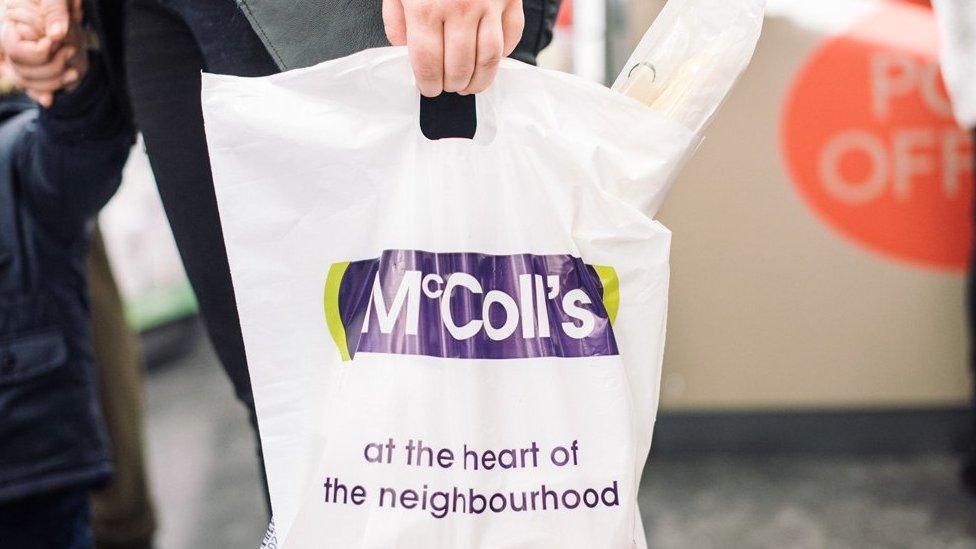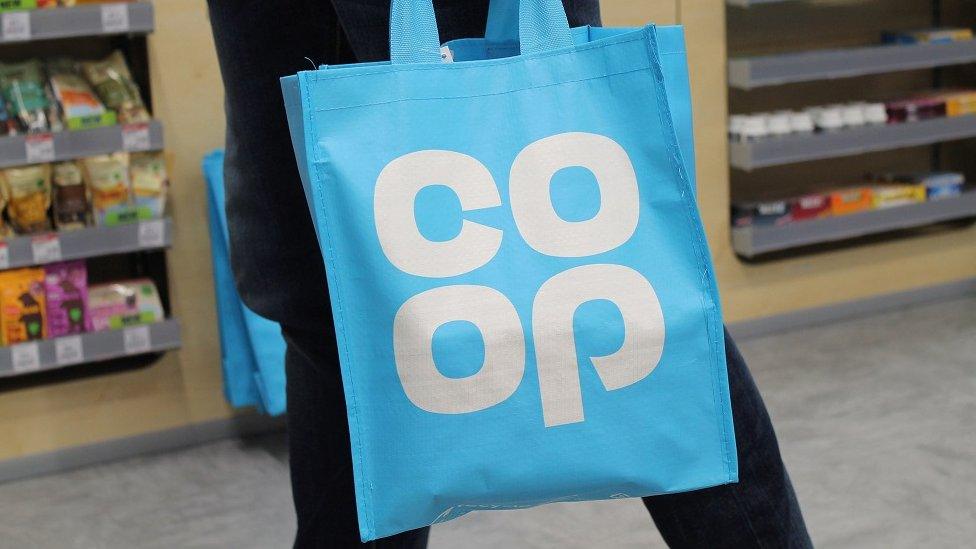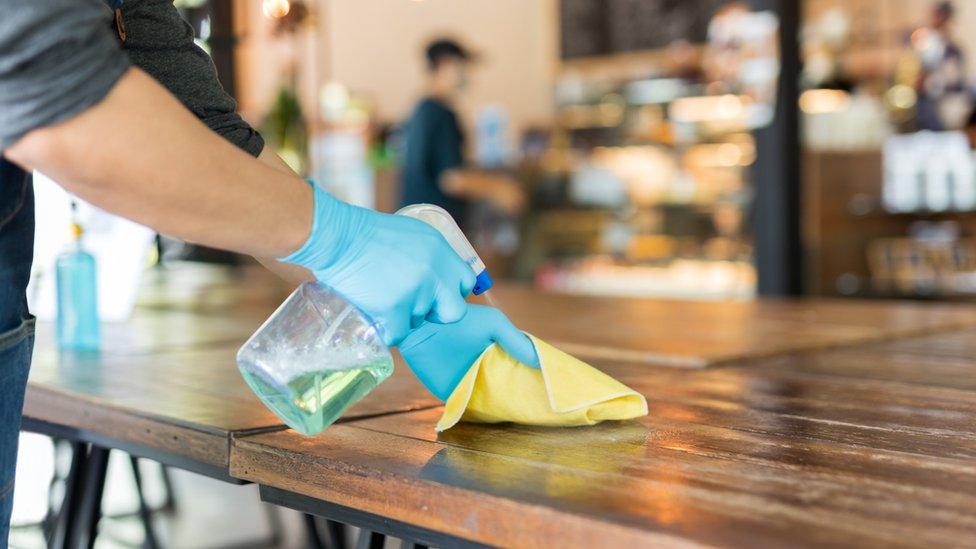McColl's convenience store chain on brink of collapse
- Published

Convenience store chain McColl's is on the brink of collapse, placing thousands of UK jobs at risk.
The retailer said it was "increasingly likely" it would fall into administration unless talks around a rescue deal were successful.
It said that discussions about securing the future of the business are ongoing.
More than 16,000 people are employed by McColl's, which has a partnership agreement with the supermarket chain Morrisons.
McColl's said that without any fresh funding in the short-term, the group would likely "be placed into administration with the objective of achieving a sale of the group to a third-party purchaser and securing the interests of creditors and employees".
On Friday, Sky News reported, external that Morrisons had proposed a deal to McColl's lenders which involved injecting funds into the struggling retailer.
It reported that it would stop McColl's collapsing and save many jobs by keeping most of its 1,400 shops open.
Morrisons declined to comment when contacted by the BBC.
McColl's has a wholesale tie-up with Morrisons, as well as Martin's newsagents, with a strategy centred around an image of a "neighbourhood retailer".
According to its website, external, it serves about five million customers each week, having been founded in Glasgow in 1901.
But earlier this week, the listed company warned that its shares would be suspended because it was unable to meet the deadline for filing its annual results.
McColl's said that its accounts would not be signed off in time to meet the deadline.
Teresa Wickham, a former director at Safeway, told the BBC's Today programme that McColl's had been "caught in a difficult place, particularly with Covid".
She said the pandemic came at a time when the firm was shifting its business model from running traditional convenience stores to selling more fresh produce in its partnership with Morrisons.
Stores that had done this had done well, Ms Wickham said, as shopping habits shifted to buying more locally in the coronavirus crisis, but the chain had lacked investment, and only a small proportion of its stores had made the shift.
"They didn't quite have enough fresh produce, and also at the time during the pandemic we switched very quickly to online shopping," she said.
"It will survive, but whether all of it survives is a difficult thing to say."
McColl's successfully raised £30m from shareholders last year to invest in driving the expansion of its Morrisons Daily convenience stores, but at the time it warned that footfall had been hit by the coronavirus pandemic.
Around the same time, it and other firms also faced allegations from the government that it had failed to pay some of its workers the UK minimum wage.
McColl's, Pret and Welcome Break said the underpayments were historic errors and staff had been swiftly reimbursed.
The businesses were made to pay back the money as well as being fined £3.2m over breaches, such as deducting pay from wages for uniforms and expenses, or failing to pay the correct apprenticeship rate.
- Published20 December 2016

- Published5 August 2021
